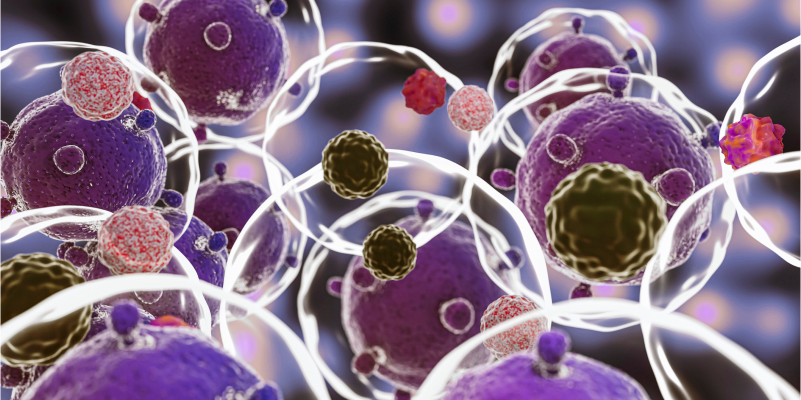
Cancer-related fatigue is a pervasive and debilitating symptom that affects a significant number of individuals undergoing cancer treatment. However, the impact of cancer-related fatigue extends far beyond physical exhaustion—it can also have profound effects on emotional well-being, quality of life, and overall treatment outcomes. Recognizing the complex nature of cancer-related fatigue, a multidisciplinary approach that involves healthcare professionals, psychologists, support groups, physical therapists, and nutritionists is crucial in providing comprehensive care to individuals experiencing this challenging symptom.
Healthcare professionals, including oncologists, nurses, and primary care physicians, play a vital role in the management of cancer-related fatigue. As the primary point of contact for patients, healthcare professionals have the opportunity to assess fatigue levels, identify potential underlying causes, and provide education on coping strategies. By addressing physical aspects such as anemia or medication side effects, healthcare professionals can alleviate some of the physical burden that contributes to fatigue. Additionally, they can provide guidance on lifestyle modifications, such as incorporating regular exercise and maintaining a balanced diet, which have been shown to reduce fatigue in cancer patients.

In the multidisciplinary approach to managing cancer-related fatigue, psychologists play a crucial role in addressing the psychological and emotional impact of fatigue. Fatigue can lead to feelings of frustration, anxiety, depression, and loss of self-esteem, significantly affecting a person’s quality of life. Psychologists can provide support through counseling and therapy, helping individuals develop coping strategies to manage the emotional toll of fatigue. They can also assist in addressing any negative thought patterns or beliefs that may arise as a result of fatigue and work with patients to reframe them in a more positive and empowering manner. Furthermore, psychologists can help patients explore and express their fears, concerns, and hopes, providing a safe space for emotional validation and processing.
Support groups offer a unique and invaluable resource in the management of cancer-related fatigue. By providing a space for individuals to share their experiences, emotions, and coping strategies, support groups foster a sense of community and belonging. Connecting with others who are facing similar challenges can be empowering and validating, diminishing feelings of isolation and offering a much-needed support network. Support groups can also provide practical tips and insights into managing fatigue, as individuals share what has been helpful for them. Through these connections, individuals can gain strength, inspiration, and a renewed sense of hope.
Physical therapists play a crucial role in the management of cancer-related fatigue by incorporating exercise and movement into care plans. While it may seem counterintuitive to engage in physical activity when fatigued, research has shown that structured exercise programs can help reduce fatigue and improve overall well-being. Physical therapists tailor exercise programs to individual capabilities and symptoms, taking into account factors such as energy levels, joint mobility, and postural stability. They may utilize gentle exercises, such as stretching or yoga, as well as resistance training or cardiovascular exercises, to help build strength, increase endurance, and reduce fatigue. Additionally, physical therapists provide guidance on energy conservation techniques and pacing strategies to help individuals manage their fatigue more effectively in everyday activities.

Proper nutrition is a fundamental aspect of managing cancer-related fatigue. Nutritionists play a vital role in assessing nutritional needs, addressing dietary concerns, and recommending specific dietary interventions to support individuals experiencing fatigue. They can provide guidance on maintaining a balanced diet that includes essential nutrients to support energy levels and optimize overall well-being. Nutritionists may also address issues such as hydration, appetite changes, or medication side effects that can impact energy levels. By ensuring individuals are adequately nourished, nutritionists contribute to improved energy levels, better management of fatigue, and enhanced treatment outcomes.
A multidisciplinary approach to managing cancer-related fatigue offers distinct advantages by addressing the diverse facets of this complex symptom. Each discipline brings a unique perspective and expertise to the table, all working together to provide comprehensive care. Healthcare professionals bring medical knowledge and can address the physical aspects of fatigue, while psychologists focus on the emotional and psychological well-being. Support groups offer a supportive network that gives individuals a sense of belonging and validation. Physical therapists incorporate exercise and movement into care plans to reduce fatigue, build strength, and improve overall well-being. Nutritionists ensure individuals are well-nourished and provide dietary guidance to support energy levels.
By collaborating and sharing information, healthcare professionals, psychologists, support groups, physical therapists, and nutritionists can develop personalized care plans that best meet the needs of each individual. This holistic approach ensures that all aspects of fatigue are addressed, optimizing support and improving overall well-being. Moreover, the multidisciplinary approach allows for ongoing monitoring and adjustment of care, acknowledging that fatigue may evolve and change throughout the cancer journey. Regular communication among the multidisciplinary team ensures that all aspects of the individual’s well-being are considered, leading to more effective and coordinated care.


Cancer-related fatigue is a complex and pervasive symptom that requires a multidisciplinary approach to provide comprehensive and effective support. Healthcare professionals, psychologists, support groups, physical therapists, and nutritionists each play distinct roles in addressing the physical, emotional, psychological, and nutritional aspects of fatigue, fostering optimal well-being and enhancing treatment outcomes.
Through collaboration and a shared focus on the needs of the individual, this multidisciplinary approach recognizes the multifaceted nature of cancer-related fatigue and strives to provide an integrated and holistic care experience. By combining medical expertise, psychological support, the power of connection and empathy, structured exercise programs, and nutritional guidance, healthcare professionals can empower individuals to navigate the challenges of fatigue and find strength, resilience, and improved quality of life throughout their cancer journey. With this comprehensive approach, individuals can regain a sense of control, improve their overall well-being, and optimize their ability to cope with the challenges of cancer-related fatigue.

Dr. Yakov Freed

Dr. Yakov Freed